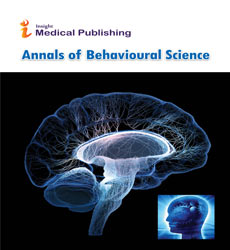Abstract
Consciousness as Control and Controlled Perception - A Perspective
Consciousness has been under intense scrutiny by researchers and philosophers for countless centuries and yet it remains mysterious. It is still not clear what consciousness is or what it is for. A fundamental problem that may be hampering substantial progress in consciousness studies is the lack of a clear understanding of the nature of the brain. It is unremarkable to suggest that consciousness is related, in some way, to brain activity, so without an authentic appreciation of what that activity is, it is improbable that an accurate and coherent articulation of consciousness will be delivered. In this paper, Perceptual Control Theory (PCT) is offered as a solution to the puzzle of the brain. From the perspective of PCT, the brain is a control system. The organization and functioning of this control system architecture is described and then the implications for the way in which we consider consciousness are discussed. Some current ideas about consciousness are overturned while others are preserved but integrated and synthesized into a coherent framework with negative feedback control as the unifying phenomenon. By recognizing consciousness as both, a phenomenon created by a massively interconnected network of sophisticated control systems that can, among other things, produce language, imagine, plan, and contemplate, and a property of this massive network, PCT provides us with the opportunity to rethink concepts as fundamental as: causation; stimulus and response; and objectivity and subjectivity.
Author(s): Timothy A. Carey
Abstract | Full-Text | PDF
Share this

Google scholar citation report
Citations : 153
Annals of Behavioural Science received 153 citations as per google scholar report
Abstracted/Indexed in
- Google Scholar
- China National Knowledge Infrastructure (CNKI)
- CiteFactor
- Cosmos IF
- Directory of Research Journal Indexing (DRJI)
- WorldCat
- Publons
- Secret Search Engine Labs
Open Access Journals
- Aquaculture & Veterinary Science
- Chemistry & Chemical Sciences
- Clinical Sciences
- Engineering
- General Science
- Genetics & Molecular Biology
- Health Care & Nursing
- Immunology & Microbiology
- Materials Science
- Mathematics & Physics
- Medical Sciences
- Neurology & Psychiatry
- Oncology & Cancer Science
- Pharmaceutical Sciences

